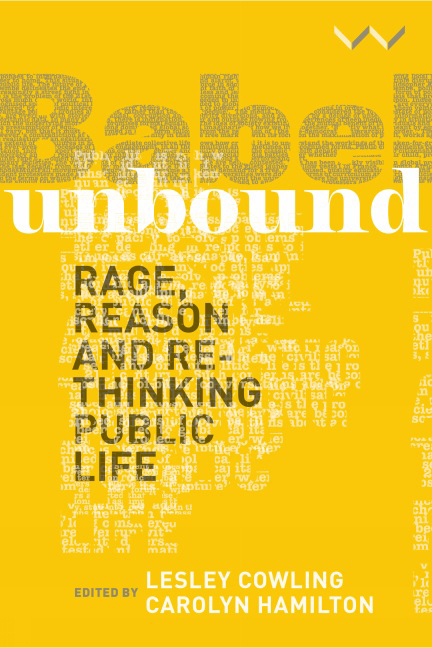Book contents
- Frontmatter
- Contents
- Acknowledgements
- Introduction
- Chapter 1 Rethinking Public Engagement
- Chapter 2 Tracing Public Engagements in Visual Forms
- Chapter 3 Media Orchestration in the Production of Public Debate
- Chapter 4 Fluid Publics: The public-making power of hashtags in digital public spaces
- Chapter 5 ‘Now We See Him, Now We Don’t’: The media and the ‘Black Pimpernel’
- Chapter 6 Archive and Public Life
- Chapter 7 Iconic Archive: Timbuktu and its manuscripts in public discourse
- Chapter 8 The Politics of Representation in Marikana: A tale of competing ideologies
- Chapter 9 Art-Rage and the Politics of Reconciliation
- Chapter 10 Anger, Pain, and the Body in the Public Sphere
- Contributors
- Index
Chapter 3 - Media Orchestration in the Production of Public Debate
Published online by Cambridge University Press: 10 September 2020
- Frontmatter
- Contents
- Acknowledgements
- Introduction
- Chapter 1 Rethinking Public Engagement
- Chapter 2 Tracing Public Engagements in Visual Forms
- Chapter 3 Media Orchestration in the Production of Public Debate
- Chapter 4 Fluid Publics: The public-making power of hashtags in digital public spaces
- Chapter 5 ‘Now We See Him, Now We Don’t’: The media and the ‘Black Pimpernel’
- Chapter 6 Archive and Public Life
- Chapter 7 Iconic Archive: Timbuktu and its manuscripts in public discourse
- Chapter 8 The Politics of Representation in Marikana: A tale of competing ideologies
- Chapter 9 Art-Rage and the Politics of Reconciliation
- Chapter 10 Anger, Pain, and the Body in the Public Sphere
- Contributors
- Index
Summary
In recent times, the established news media have been increasingly accused of being biased towards liberal elites. In many countries across the world the ‘mainstream media’ have been accused of peddling the political agendas of powerful interests and misrepresenting the news, a charge that has become a truism on the Internet, repeated by people on both the left and the right. United States president Donald Trump has drawn on these sentiments to dismiss traditional news media as ‘fake news’ and he regularly leads crowds in chants of ‘CNN sucks’.
This marks a significant moment in the waning of established media as the preeminent producers of news and opinion, with implications for their role in public life. The decline of media dominance, according to Bill Kovach and Tom Rosenstiel, began in the 1990s, when Internet websites began to break stories and promote views that ‘old school’ media were wary of, such as a report by a news blog, The Drudge Report, about former US president Bill Clinton's affair with an intern. ‘The proliferation of outlets diminishes the authority of any one outlet to play a gatekeeper role over the information it publishes,’ Kovach and Rosenstiel noted at the time. Eighteen years later, the massive global networks of Facebook, Twitter and Google dominate the distribution of journalism and the established media have arguably ceded control over the circulation of news.
The media's power to control what kinds of discussions take place in society has been undermined by covert agents infiltrating the new technologies of distribution and publication. In 2017, more than half of web traffic came from bots – programmes built to do automated tasks. Some of these have been ‘weaponised’ for geopolitical ends, as foreign powers and politically connected individuals target public discussions and spread misinformation to influence public opinion.
This new context, dubbed a ‘post-truth environment’, in which facts follow opinion rather than the other way around, is the result, some commentators argue, of the established media losing control over what information and opinion enters the public domain. Senior editor at the Guardian, Katherine Viner, wrote an impassioned long piece in which she argued that the challenge was ‘to establish what role journalistic organisations still play in a public discourse that has become impossibly fragmented and radically destabilised’.
- Type
- Chapter
- Information
- Babel UnboundRage, Reason and Rethinking Public Life, pp. 64 - 87Publisher: Wits University PressPrint publication year: 2020



